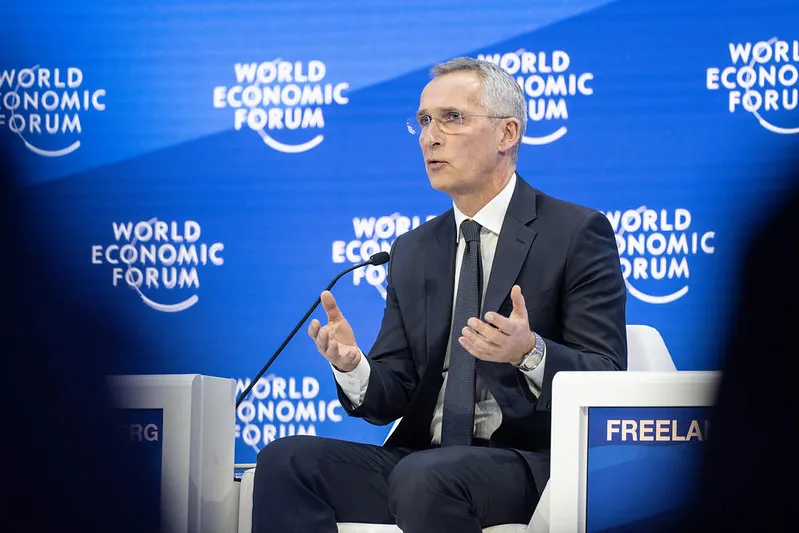Speaking at the World Economic Forum in Davos, Switzerland on Jan. 16, NATO Secretary General Jens Stoltenberg declared that all of China’s overseas investments are now to be seen as a threat to NATO’s security interests. While “we don’t regard China as an adversary,” he claimed, China is “violating core principles for NATO,” and therefore NATO must respond. “So what happens in Asia matters for Europe and what happens in Europe matters for Asia,” he warned.
Over the recent months, NATO has been expanding its reach well beyond the “North Atlantic,” and is increasingly pushing a strategy that includes a strong presence in the Indo-Pacific. A trilateral meeting among the leaders of the U.S., Japan, and South Korea took place last August, the first meeting of its kind, and there has even been talk of opening a NATO office in Japan. This is in addition to the AUKUS and Quad agreements, which have expanded U.S. and U.K. military presence into the Pacific with the participation of Australia, India, and Japan.
But now NATO is going a step further. Stoltenberg went on: “And we also have to understand that this is not about NATO moving into Asia, but instead about the fact that China is coming close to us. We see them in Africa. We see them in the Arctic, we see them trying to control critical infrastructure,” adding that these are not merely commercial issues, but are “about our security.”
Given China’s role in the BRICS, which itself is experiencing significant growth compared to the Western world, Stoltenberg’s comments indicate the increasingly strident attempts by Global NATO to militarily confront any opponents to their hegemony.






